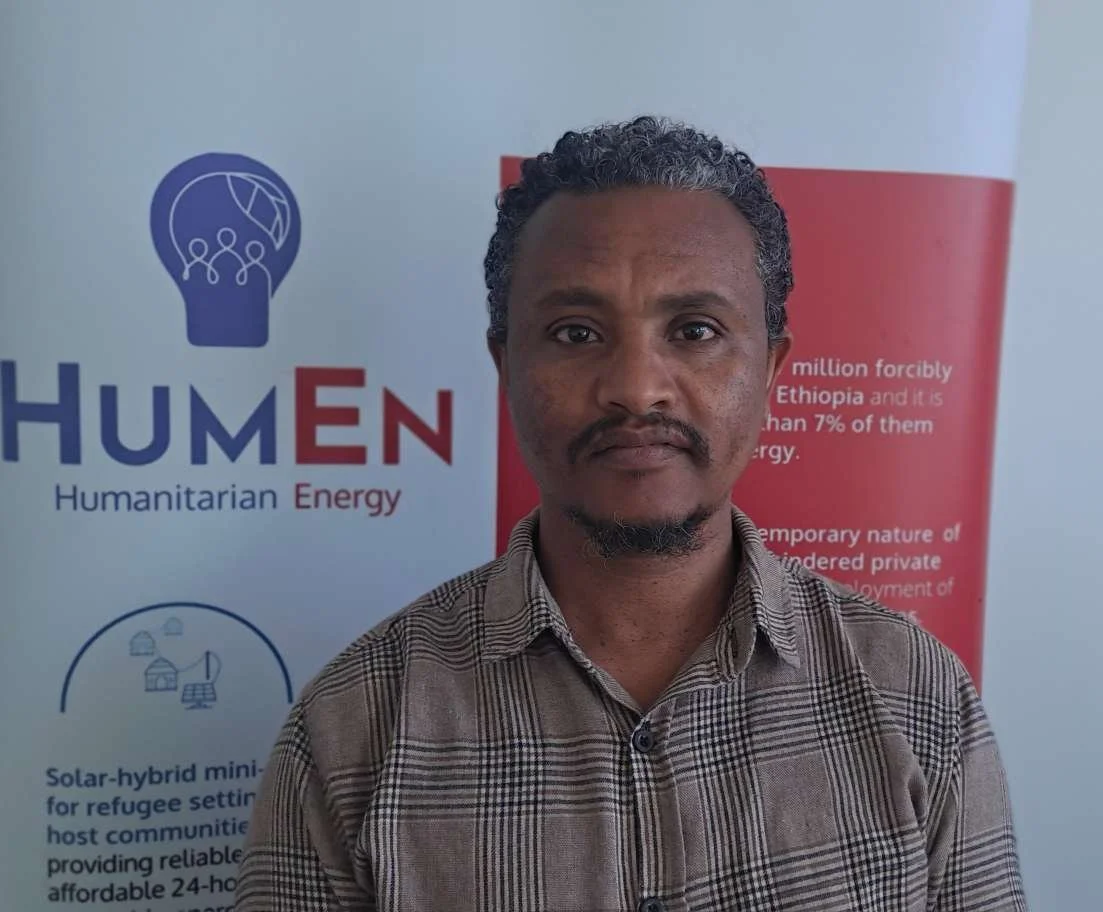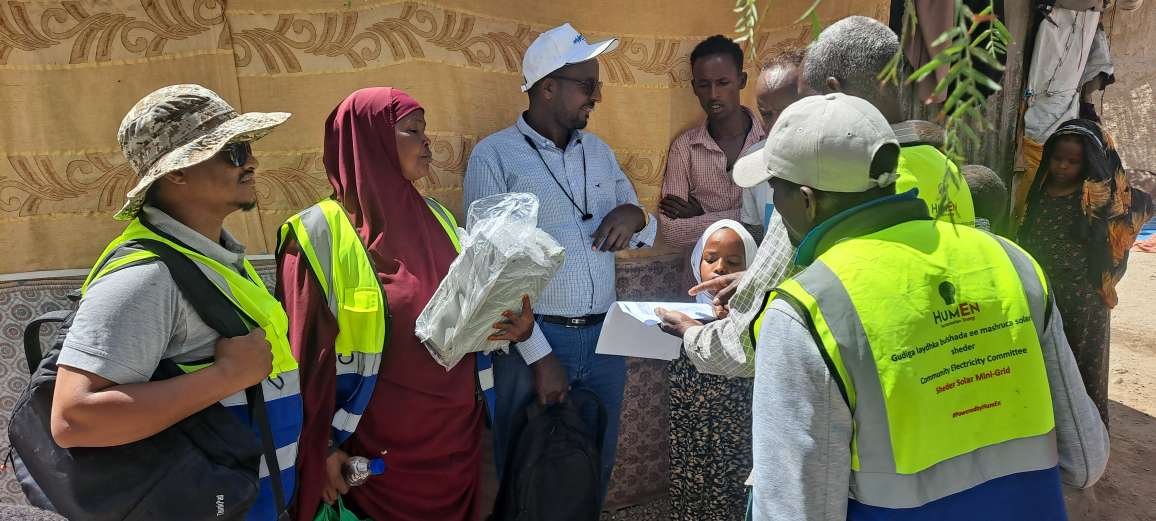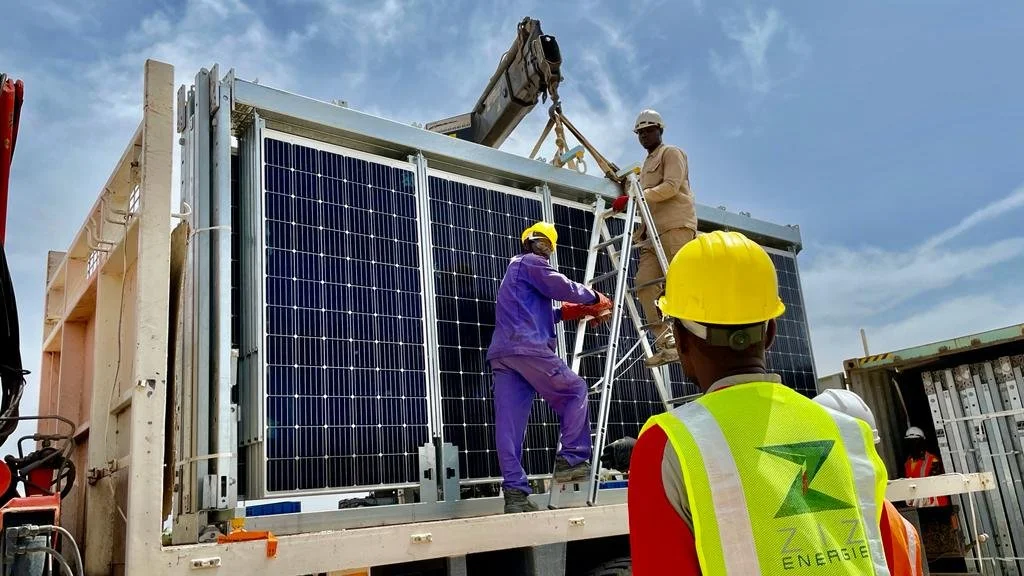Chris Greene is the CEO of Meds & Food for Kids (MFK) in Haiti
Nuru
Kube Energy
Naim Odeh is the Chief Technology Officer at Kube Energy
Why do you personally work in renewable energy?
It has been my passion since childhood. I also believe that it is our responsibility to save the earth and develop a clean environment for future generations.
I was born and grew up in a small village in Palestine in the West Bank. We used to have electricity for 2 to 3 hours a day by running a small, shared diesel generator with the neighborhood. Diesel was and is still very expensive in Palestine, especially for farmers with low incomes. I was always thinking about this and creating a solution that would help my people get free, cheap electricity without the black smoke from the generator that always bothers me.
The solar cells found on calculators sparked the first hint for me about solar energy. I was 8 when I started my first experiment to power a light using a small solar cell that I removed from an old calculator. I continued my journey with electricity by searching, asking, and using any available resources to understand how these systems work.
I started my professional journey with solar as a trainee electrical engineer with Philadelphia Solar Company in Jordan in 2011.
How does your company engage with local communities?
We engage with local communities by hiring local contractors and laborers for the project’s locations, spreading the culture around renewable energy, and providing almost free electricity to the public service centers (e.g., schools and hospitals).
I usually get engaged with the projects at an early stage, starting with collecting and analyzing the necessary data and information to design the applicable system and continuing through operation and maintenance.
Tell us about a recent or upcoming project. What is most compelling about it?
Our Baidoa solar plant project (in Somalia) serves as the first of its kind in the region. It is a very challenging project, as it is a big project that uses the latest technologies in renewable energy that is being installed in an area that has a lake and complicated logistics services.
How can/do “Peace RECs” support your project development?
Peace RECs support project development by offering funding for the interconnection with local communities in areas where we install our systems, as well as facilitating connections with local organizations and authorities.
What impacts does renewable energy have in the communities where you work?
The biggest impacts of renewable energy include guaranteeing low and more affordable energy costs, providing environmentally friendly systems, and increasing awareness of renewable energy and climate solutions.
Humanitarian Energy (HumEn)
Desalegn Getaneh Woldemariam is the Managing Director, Humanitarian Energy (HumEn)
Why do you personally work in renewable energy?
I am from Addis Ababa, Ethiopia and have been working in the renewable energy space for over 15 years. One of the reasons I am personally interested in the sector is to contribute to the global and national efforts to combat the impact of climate change. Working in the sector, I have witnessed the impact of climate change through frequent droughts, unpredictable weather, and heavy and/or less rainfall, resulting in conflict over scarce resources. For me, engaging in the renewable energy sector is synonymous with promoting peace.
How does your company engage with local communities?
We have developed a detailed community engagement plan with the objectives of informing communities about the project and the type of services we provide, increasing the visibility of the company, the program and shareholders, and its associated services.
Once we identify our target audience with the community, there are many ways Humanitarian Energy engages the communities, including but not limited to focus groups, formal and informal discussions, paper-based surveys (when needed), and one-on-one interviews (key informant interviews). We use a standard list of questions to collect input and synthesize the input gathered in a consistent and meaningful way.
Tell us about a recent or upcoming project. What is most compelling about it?
Our main current project is the 254KWp mini-grid in the Somali Region, Fanfen zone, Awbere Wereda, Sheder Kebele. There are three more projects in the pipeline in the same region, Liben Zone, with an installed capacity of over 2.1MWp.
The first time I was introduced to the Sheder community was back in 2010 when we relocated refugees from Lefisa Reception Center to Sheder refugee camp. I was a member of a task force assigned to this task. Since then, I have served the Sheder community in different capacities, from a field coordinator based in the camps to a managing director of my previous organization. It is now a privilege for me to join Humanitarian Energy and contribute to the efforts of providing access to clean and sustainable energy for the Sheder community who need the service very badly.
What makes all of our projects compelling is the community we serve. We are serving displaced communities who have little or no access to clean energy.
How can/do “Peace RECs” support your project development?
Despite our efforts, there are still energy needs in the community that will not be covered with a mini-grid. Our target households with this specific project are refugee households. To create a healthy coexistence and improve harmony of the refugee and host community, we planned to have a project that serves both communities together. The solar street light project is planned to serve both communities to eventually foster security within the community.
What impacts does renewable energy have in the communities where you work?
There are several impacts we have observed that we want to highlight here:
Improved access to energy
Improved health by displacing the use of kerosene lamps/lanterns
Improved students’ school performance through studying at night and doing homework
Greater adult education through the opening of evening schools
Improved economic activity and livelihood opportunities
Cabudwaaq Electric Company (CECO)
Guled Giama, Chairman of the Board of Directors and Shareholder in Cabudwaaq Electric Company (CECO) (formerly Dayah Electric Power Company (DEPCO), Gedo Energy Power Company (GEPCO) and Fanole Juba. The three companies are Electricity Service Providers (ESPs) operating mini-grids in Abudwaq, Beled Hawo and Bardere cities respectively.
Why do you personally work in renewable energy?
Native American folklore depicts the hummingbird as a selfless and hardworking animal that works hardest for the greater good, in the face of adversity, despite its tiny stature. I am similarly motivated as an entrepreneur to invest in clean energy as a socio-economic enabler and create a positive impact at my level to ensure a sustainable future for future generations.
In the intricate tale of my life, I embarked on a journey that unfolded like a captivating novel. As the son of a diplomat in France during the 1970s, I ventured into the realms of education, completing secondary school before returning to Somalia as a student at Gaheer University in the vibrant 1980s. The chapters of my life then took an unexpected turn, leading me back to France as a refugee in the tumultuous 1990s. However, it was within the folds of adversity that the most inspiring chapters were written.
I, Guled Giama, a French citizen with roots tracing back to Somalia, left my homeland at the age of nine. A span of eleven years passed before I returned, having completed my secondary education. The corridors of Gaheer University in Somalia became the setting for the next segment of my educational journey, where I earned a degree in economics.
Tragedy struck with the eruption of the 1991 civil war, propelling my family and me to leave our homeland once again. The odyssey unfolded from Mogadishu to Kismayo, navigating the seas to Mombasa port. A transient existence in makeshift camps in Mombasa and later Nairobi preceded our eventual return to France. Amid the challenges of forging a new life, my heart remained tethered to Somalia, particularly my hometown
Over the years, my commitment to supporting my family and community persisted, even from a distance. The year 2013 brought with it a pivotal opportunity: a chance to visit Somalia. It was during this visit that the pressing need for essential infrastructure, especially electricity, became glaringly apparent. The aftermath of the civil war left Somalia devoid of critical infrastructure, prompting a collective initiative with fellow diaspora businessmen. Together, we embarked on establishing the first standardized electricity network in Abudwak.
My professional journey as an international consultant in the manufacturing sector had acquainted me with the rising demand for clean and affordable electricity in African industrial companies. Unbeknownst to me, this awareness would someday manifest into my role as an electricity provider for my hometown in Somalia. Since the inception of the project in 2013, I personally invested my time, knowledge, and resources. As the chairman, chief engineer, sales manager, human resource director, and the liaison between the company and the community, I take pride in announcing the successful installation of electricity at three sites, generating 150 direct jobs and 5,000 indirect jobs.
The act of illuminating the community with light and electricity is a source of profound satisfaction for me.
How does your company engage with local communities?
We operate ESPs as social enterprises that supply power for domestic, commercial, industrial consumption and provision of essential service provision. Our mini-grids create numerous direct and indirect employment opportunities, hiring permanent and temporary staff. Our operations also support numerous enterprises such as contractors, and equipment/commodity suppliers.
We serve as the pillars for the societies in which we operate by supporting essential public services like education, health, administration, and places of worship, all of whom we supply with free or discounted power (at subsidized tariffs/rates).
Tell us about a recent or upcoming project. What is most compelling about it?
We have several ongoing and planned projects. Most notably is our partnership with Energy Peace Partners and supporting their work to launch the P-REC Aggregation Facility (PAF) in order to scale financing for sustainability and clean energy projects in fragile states. When implemented and fully operational, the PAF will facilitate life-changing financing for endeavors for hundreds of farmers in Somalia, benefiting youth, women and elderly persons alike.
How can/do “Peace RECs” support your project development?
Peace RECs play a vital role in implementing projects that mitigate the root causes of insecurity arising from resource-based conflicts in Somalia. Peace RECs support sustainable investments that create income-generating activities or enhance livelihoods, thus contributing towards peacebuilding in Somalia.
What impacts does renewable energy have in the communities where you work?
The communities we operate in take pride in their contributions towards sustainable livelihoods as espoused by the UN Sustainable Development Goals (SDGs). Our preference for solar energy enables our mini-grids to reduce tariffs by between 20% to 50% during off-peak and daylight use, benefiting micro-enterprises, SMEs, and light industries.
Our activities impact mainly access to clean affordable energy (SDG 7) with ripple effects to several other SDGs such as decent work and economic growth (SDG 8), reduced inequalities (SDG10), sustainable communities (SDG11), and climate action (SDG13).







